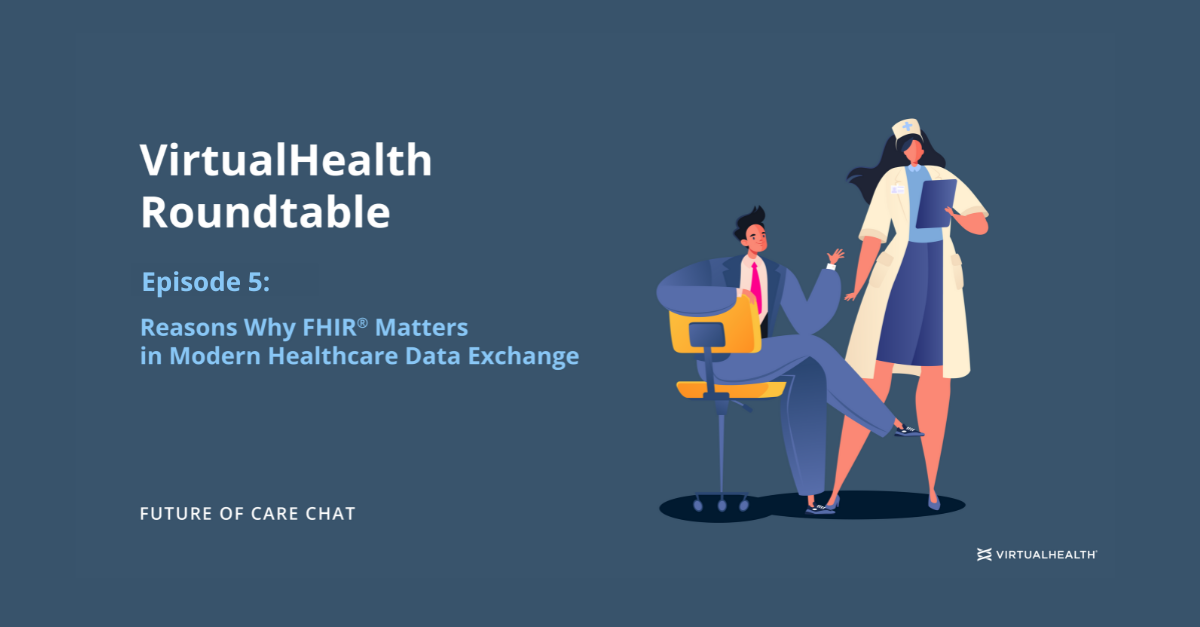Why does FHIR® matter so much in the modern healthcare data exchange?
A conversation with VirtualHealth product team leaders about the different reasons why FHIR®matters in the modern healthcare data exchange. There are a number of reasons why the HL7® FHIR® standard matters in the modern healthcare data exchange. From improved access for payers, providers, and patients to access medical and clinical records, to easier data sharing across care teams, FHIR® makes it possible to support a patient-centric coordinated-care approach to help improve care coordination overall.
Next up from our last data interoperability series episode, In Episode 5, Marcus Caraballo, VP of Product Management, and Huthaifa Khan, Director, Solutions Architecture, discuss why FHIR® matters so much in the modern healthcare data exchange.
Reasons why FHIR® matters in modern healthcare data exchange
- Improved access. Need and desire of payers, providers, and patients to access medical/clinical records
- Easy data sharing. FHIR® makes it feasible and easy to access the right data set from any device or application. Supporting a patient-centric coordinated-care approach helps improve care coordination overall. This is made possible by the expanded accessibility FHIR allows, including easy, secure access to medical data, and multi-person access to EMRs.
- Enables seamless communication between payers, providers, and care specialists.
- FHIR® is mobile friendly to adapt to a mobile care program. It can be easily set up and accessed by mobile phones, which is key for payers and providers leveraging mobile healthcare technologies, telehealth, and with care management solutions that function on phones or tables for in-field care management like LTSS and home health situations.
- Supports RESTful Architecture. FHIR makes updating resources quick and easy, with quick implementations and important time-saving and cost-saving wins for healthcare providers and payers.
- FHIR® helps with cost savings and is cost-effective. Compared to other complex standards, FHIR® is adaptive and easy to use. Health data can be transmitted easily with FHIR® , and the results and insights can also be analyzed more effectively. FHIR® also helps reduce the overall healthcare costs associated with EDI, can alleviate the burden on IT and engineering teams, and it can enable an automated data interchange to speed up access and ease of viewing, which can give time back to providers/care teams to enact care actions faster.
If you missed past episodes, watch them below:
*HL7® , FHIR® and the FHIR ![]() are the registered trademarks of Health Level Seven International and their use does not constitute endorsement by HL7.
are the registered trademarks of Health Level Seven International and their use does not constitute endorsement by HL7.

